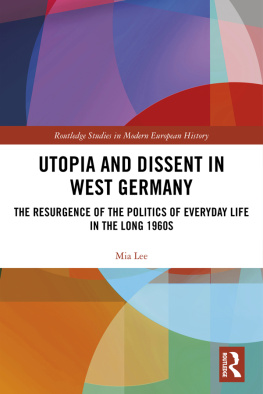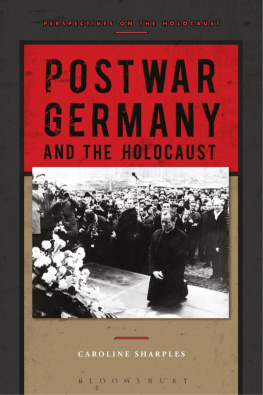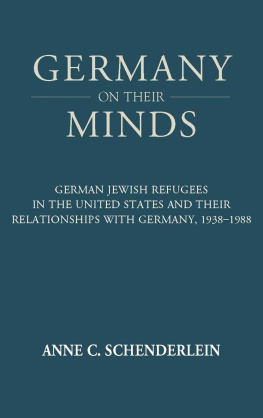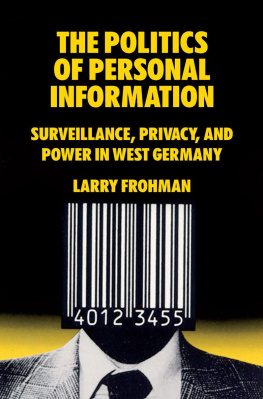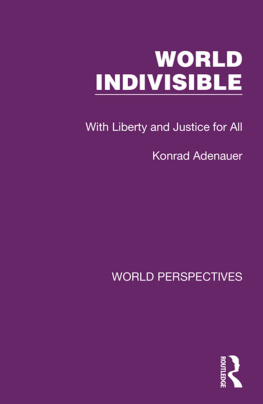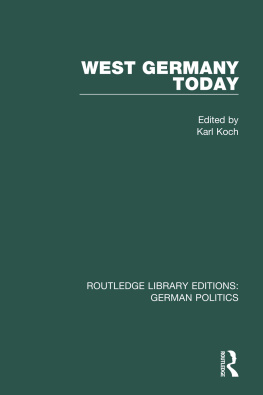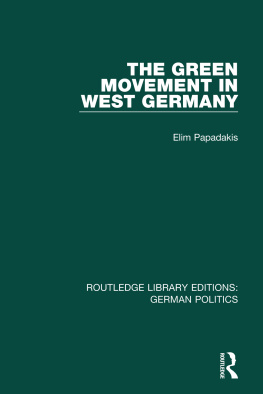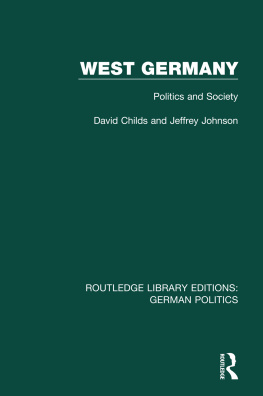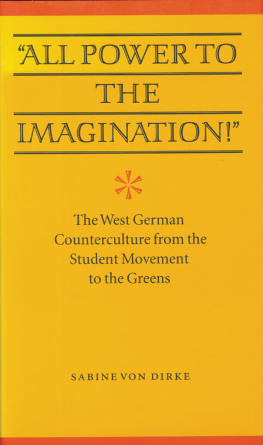Utopia and Dissent in West Germany
Just as Chancellor Konrad Adenauer was seeking re-election on a campaign of no experiments, art avant-garde groups in West Germany were reviving the utopian impulse to unite art and society. Utopia and Dissent in West Germany examines these groups and their legacy. Postwar artists built international as well as intergenerational networks such as Fluxus, which was active in Dsseldorf, Wiesbaden, and Cologne, and the Situationist International based in Paris. These groups were committed to undoing the compartmentalization of everyday life and the isolation of the artist in society.
And as artists recast politics to address culture and everyday life, they helped forge a path for the West German extraparliamentary left. Utopia and Dissent in West Germany traces these connections and presents a chronological map of the networks that fed into the extraparliamentary left as well as a geographical map of increasing radicalism as the locus of action shifted to West Berlin. These two maps show that in West Germany artists and their interventions in the structures of everyday life were a key starting point for challenging the postwar order.
Mia Lee is Assistant Professor of History at the National University of Singapore.
Routledge Studies in Modern European History
Bringing Cold War Democracy to West Berlin
A Shared GermanAmerican Project, 19401972
Scott H. Krause
Greeks without Greece
Homelands, Belonging, and Memory amongst the Expatriated Greeks of Turkey
Huw Halstead
The Mediterranean Double-Cross System, 19411945
Brett E. Lintott
Ignoring the Nations Call
National indifference and the History of Nationalism in Modern Europe
Edited by Maarten Van Ginderachter and Jon Fox
Refugees, Human Rights and Realpolitik
The Clandestine Immigration of Jewish Refugees from Italy to Palestine, 19451948
Daphna Sharfman
Food and Age in Europe, 18002000
Edited by Tenna Jensen, Caroline Nyvang, Peter Scholliers and Peter J. Atkins (Durham University)
Utopia and Dissent in West Germany
The Resurgence of the Politics of Everyday Life in the Long 1960s
Mia Lee
www.routledge.com/history/series/SE0246
Utopia and Dissent in West Germany
The Resurgence of the Politics of Everyday Life in the Long 1960s
Mia Lee
First published 2019
by Routledge
2 Park Square, Milton Park, Abingdon, Oxon OX14 4RN
and by Routledge
52 Vanderbilt Avenue, New York, NY 10017
Routledge is an imprint of the Taylor & Francis Group, an informa business
2019 Mia Lee
The right of Mia Lee to be identified as author of this work has been asserted by her in accordance with sections 77 and 78 of the Copyright, Designs and Patents Act 1988.
All rights reserved. No part of this book may be reprinted or reproduced or utilized in any form or by any electronic, mechanical, or other means, now known or hereafter invented, including photocopying and recording, or in any information storage or retrieval system, without permission in writing from the publishers.
Trademark notice: Product or corporate names may be trademarks or registered trademarks, and are used only for identification and explanation without intent to infringe.
British Library Cataloguing-in-Publication Data
A catalogue record for this book is available from the British Library
Library of Congress Cataloging-in-Publication Data
A catalog record for this book has been requested
ISBN: 978-1-138-38962-5 (hbk)
ISBN: 978-0-429-42379-6 (ebk)
Typeset in Galliard
By Wearset Ltd, Boldon, Tyne and Wear
Contents
PART I
Arts autonomy and social function
PART II
The primacy of political action
I have dragged this manuscript around the world, and now after what has been an unexpectedly long journey, I have the privilege of thanking a great number of people who helped me bring this project to a satisfying end.
First and foremost, I would like to thank Bob Moeller, that quiet-spoken, Birkenstock-wearing pillar of postwar German history who patiently pored over multiple drafts and advised me on many worries and sorrows. I look forward to years more of his judicious observations, warmth, and laughter.
The University of Michigan gave me the space and the training to start this project. I thank Geoff Eley for creating the uniquely vibrant and diverse academic culture that made the History Department special, and for the generous support that he continues to extend long after my departure from Tisch Hall. And I am grateful that I was able to share this culture of exchange with my comrades Tara Zahra, Marti Lybeck, Roberta Pergher, Anne Berg, and the late Mary OReilly.
At various moments I did entertain doubts about the whole academic venture. In these conversations I both remember and imagine myself conversing with Ela il and Ruchi Choudhary. I am incredibly fortunate to have been able to rely on their wisdom, love, and support at all hours of the day and night.
Berlin was my research base and so might have been a lonely experience but for the many friends who ensured that it was a riotous as well as enriching time. In particular, I would like to thank Carla MacDougall, Sasha Rossman, and Mona Chebbani for making me a part of their lives.
I began my early revisions at the American University of Cairo. My thanks and love go to John Swanson, Neeraja Sankaran, Amy Motlaugh, and Hanan Kholoussy, as well as the many others who filled our lives in Egypt with thoughtful conversation and laughter. For me, Cairo remains a kind of home away from home because of the comradery and warmth we enjoyed there.
At Warwick I agonized about how to proceed. Fortunately, I was able to draw on the insights of my colleagues and friends Rainer Horn, Christoph Mick, Beat Kmin, Maria Luddy, Chris Hess, and Margot Finn, who taught me about the profession in inspiring as well as unlikely ways.
The National University of Singapore provided vital support in getting this book through its final stages. I would like to extend particular thanks to Yong Mun Cheong, Wang Jin Ping, Sharon Low, and the inimitable Malcolm Murfett for helping me navigate the dense terrain of the Red Dot and make the most of the opportunities here.
In addition to these friends, I benefited from the support of several institutions and archivists, some of whom remain very dear to me. The University of Michigan Rackham School of Graduate Studies, the Paul & Daisy Soros Foundation, and the DAAD all provided early support for this project. The National University of Singapore generously funded an important follow-up research trip that took me to archives in London, Paris, and Munich. A few very special archivists must also be mentioned here. Eckhard Siepmann of the Werkbund-archiv in Berlin helped me immensely. In addition to pointing out possible research directions, he provided an invaluable service by putting me in touch with Vera Zimmer and Dieter Kunzelmann. The lovely Heinz Koderer of the APO-Archiv Munich dedicated his life to remembering not just 68 but the entire glorious history of Munichs artistic and cultural life. I regret that I was unable to finish this book in time for him to see it. The same sentiment holds true for Vera Zimmer, who established the Spur Archiv and shared her time so generously with me for this project.

